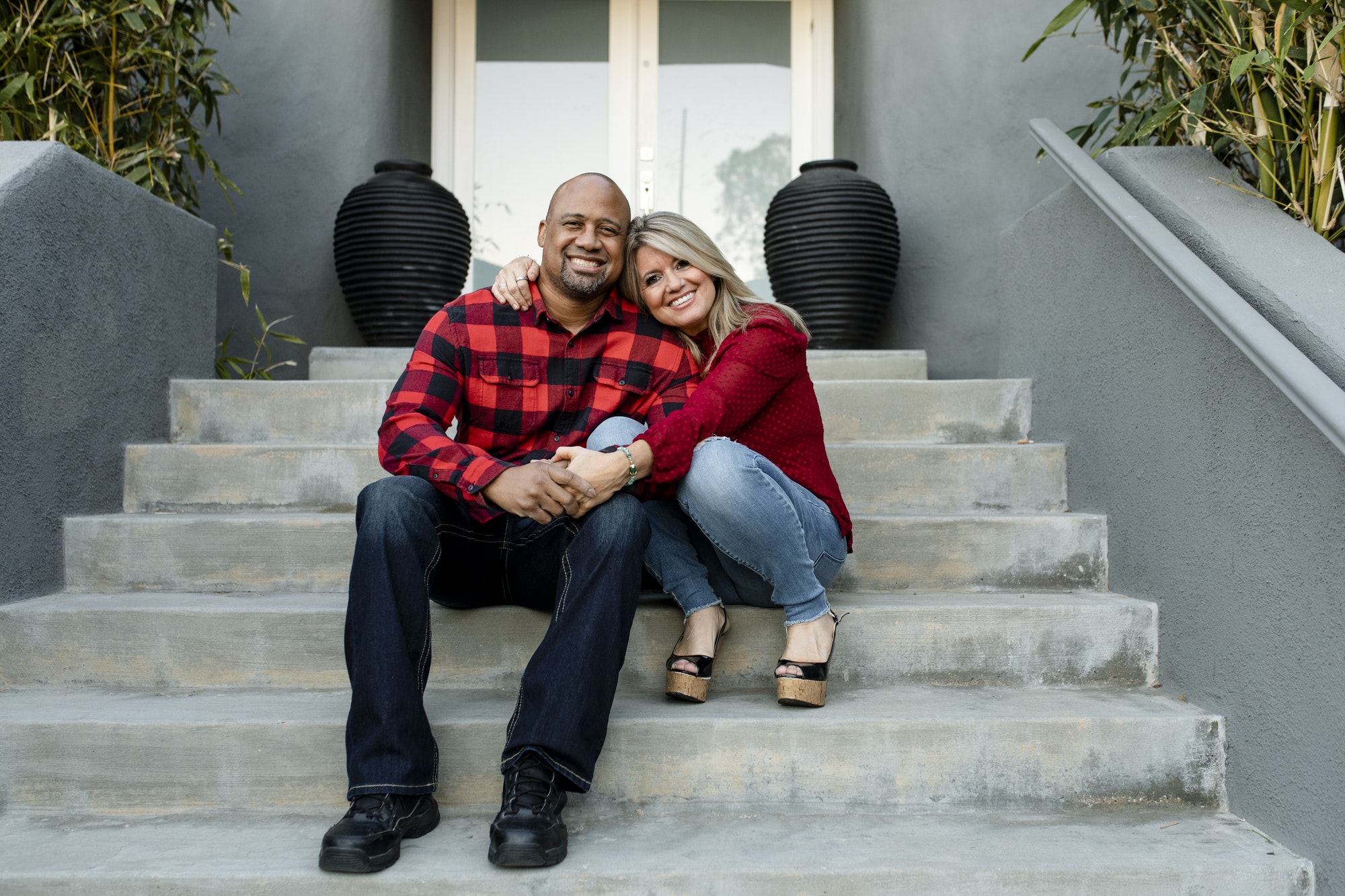

Whenever we hear about infidelity, more often than not it’s presented as an immediate end-all event for a relationship, after which the only course of action is to break up and move on. It’s no wonder why people have this idea: when your partner is unfaithful, it’s a massive betrayal of trust and an affront to your sense of self-worth. Feeling so fundamentally disrespected and hurt by someone you love is the reason why plenty of relationships do fall apart after infidelity. However, I wanted to focus today’s article on an important caveat when it comes to cheating: it doesn’t necessarily have to mean the end for you and your partner. Although there are certainly many, many situations in which your best move is to walk away, there are also plenty of examples of couples rebuilding their relationships after infidelity. When you’re faced with such an immediate and painful decision, the key is rethinking infidelity: it’s not always a kiss of death, but rather a symptom of a very serious problem with either your partner or your relationship. Focusing on identifying that problem is the best way to determine whether it’s worth it to stay and try to fix things, or to walk away assured that you’ve made the right choice.
This isn’t to give cheaters a pass, or to suggest in any way that you might be responsible for your partners’ actions. Rather, this article is meant to point out the fact that the “leave immediately, no matter what” narrative isn’t always the right fit for every situation. If you’ve been cheated on, you do have the power to stop and assess your next move. It’s in your hands, and if you take the time to think through what went wrong and whether you can or should try to address it, you’ll be much more comfortable taking your next steps in either direction. Let me start with an example of how this works.
Several months ago, I worked with a client that we’ll call Emma. She had married to her husband Frank straight out of high school, and roughly a month away from their 9 year anniversary, he admitted that the night before he had slept with a girl he had met at a bar. Emma was devastated: it wasn’t just the thought of him with someone else, but the feeling of betrayal that stung the most. When he had texted her that he was spending the night with a friend, she hadn’t given it a second thought, and now the thought that he went out of his way to lie to her just destroyed her.
Hurt, she told her family and friends about the incident, which strained Frank’s relationships with all of those people. They all gave her the same advice: leave him. However, no matter how much she was hurting, something about that advice simply didn’t sit well with her. She listened to her gut feeling and reached out to me, and together we took a step back and discussed the overall patterns in their relationship, Frank’s behavior before and after cheating, and most importantly, the fact that she believed their relationship could be saved after cheating even though nobody else seemed to.
Ultimately, her gut feeling turned out to be right: Frank had a serious drinking problem that had been building up over the years, and left unchecked, it led him to make increasingly reckless decisions. She hadn’t thought much of the small things, but in the broader context, a clear pattern was visible leading straight to the most reckless decision of all. That didn’t excuse his behavior, but it gave him something tangible to work on that could prove to Emma that he was serious about not losing her. Frank’s work on sobering up gave Emma a way to measure her relationship’s road to recovery, and being open with each other about the process also dredged up a lot of other long-neglected problems that could now be nipped in the bud.
Emma and Frank are still together, and if you ask her, their relationship feels even stronger than it did before he cheated. Of course, she still gets pangs of pain from time to time, but by having identified the real problem and seeing Frank do everything to fix it, she has ultimately found it in her heart to forgive him. If she had listened to the advice of her friends and family, I believe right now she would be haunted by that lingering gut feeling that she may not have made the right choice. On the other hand, if she had identified the problem and Frank took no steps to correct it, she would have been able to walk away feeling secure in her decision.

So, you’ve been cheated on, and you’re wondering whether it’s even possible to forgive someone for this kind of pain. Well, the short answer is yes, it’s possible. However, there are a lot of elements that come into play in order for this to be the right decision, and you need to keep an eye on all of them. There’s a huge difference between deliberately forgiving someone, and letting yourself be toyed with and deceived by a cheater.
Let’s take a look at some of the things worth keeping in mind as you figure out what to do:
As you consider whether there’s a path forward with your partner, consider this: communication and honesty are your most powerful tools to forge the road ahead. You’re going to need to lay everything bare and be completely open with each other about what you’re feeling and why. If that’s impossible, there’s no use even trying. That’s why the surest sign that it’s time to walk away is when you find your partner lying about something after the affair, because it’s proof that the fundamental tools you need right now aren’t working.
On the other hand, being aware of the importance of communication and honesty means that you can ask for absolute openness between you two. Measuring how willing your partner is to oblige you is key: like I said, if they’re not, then there’s no use trying. Unfortunately, even if your partner is willing to be completely honest, talking about infidelity openly is still going to be painful process. However, pushing through the discomfort is going to lead you to a whole slew of things that may have caused the cheating. These causes are never going to excuse the actions, finding out what they are gives you something tangible to work with. Once you know what went wrong, you can gauge whether it’s something worth fixing or not. Communication isn’t always easy. If you need some starting points for tricky situations like these, check out our course in communication by clicking here.
Often, after digging deep enough, people find that the root of the problem is entirely with their partner. If this is you, you may simply have to decide whether you’re going to wait to see if they address it or not. If you do want to give it a shot, concentrate on the concrete steps that your partner can take to demonstrate their willingness to solve the underlying issue that led to infidelity. Ultimately, this is going to be about their own self-improvement, which is an arduous and long process. Knowing what they need to be working on, and seeing whether they’re taking it seriously, is one of the strongest ways you have of determining a healthy course of action for yourself. If it’s a problem with the relationship, then measure your own willingness to make an effort alongside your partner’s effort! You may find that the damage is simply too great to warrant the work you’d need to put into fixing things, and that’s completely fine too.
When wondering what to do in the aftermath of infidelity, it’s vital to think about timeframes. One of the many problems that can come up with the “end-all” narrative about infidelity is the pressure it puts on you to decide NOW. But, the truth is that it’s perfectly okay to spend time trying to solve the issues, and reserving the right to walk away later! In fact, slowing down can often be a lot healthier no matter which way things work out.
If you’re debating whether your relationship can be saved after cheating, don’t think about tomorrow. Think about a year from now. That’s because your feelings at the moment aren’t necessarily good indicators of the overall health of the relationship! Looking at it long term takes a lot of pressure off of trying to interpret your feelings now, and instead allows you to take a more rational look at how things are actually going between you and your partner overall. In addition, this takes some pressure off of fixing those problems you may be identifying. After all, these things take time, and giving yourself and your partner room to work on them is vital if you want to succeed.
Looking at things in the long-term is also something your partner needs to understand. If they’re panicking and thinking of ways to calm you down right now, they have it all wrong. There’s no way to move past cheating in 24 hours. Your partner needs to understand the amount of time that goes into the healing process, and be committing to changing their behavior and improving themselves over the long term. Your partner’s willingness to understand this is already a strong indicator of their willingness to put in the kind of lasting effort that can pull your relationship back from the brink. If they don’t get it, and want to simply fix infidelity this instant, you’re probably best off leaving.
Let’s say that your partner is doing everything right, you’ve put the work in together to lay the relationship bare and spot the problems eating away at it. Your partner is putting in the effort to improve, but your own feelings are just not the same since they cheated. What now?
Consider that your self-worth and self-respect are precisely the things that are attacked by infidelity. It’s going to take a lot of time to build them back up, and it’s natural that you won’t feel the same about your partner during that process of recovery. Instead, you should be really sensitive to the way your partner treats those parts of your identity: are you loved, respected, and valued? Pay attention to whether or not there’s an effort being made to build those things back up, because if there is, the feelings could return. If there isn’t, then it’s time to move on. Beyond that, try not to think about it too much: the reality is that falling out of love is marked by an absence of emotion, and if that’s happening to you, after a while you’ll know it and most likely want to walk away on your own.

This part is simple: You should walk away when your partner is remorseless, unwilling to meet you halfway, unwilling to communicate, unwilling to admit that it’s a problem with themselves, and unwilling to shoulder any blame. This is equally true if your partner is twisting things around and making it seem like it’s actually your fault! If you feel blamed for their infidelity, if you feel ashamed of feeling hurt, or if you feel scared to confront them, it’s not worth it. Walk away, because nobody deserves to feel like that.
With that being said, let’s recap what to do if you feel like you’re not sure what to do, but you don’t want to rule out trying again. Try to think of these following things:
1. Is your partner completely honest with you, can you trust that they aren’t lying after infidelity? Communication, honesty, and trust are your tools with which to climb this mountain. They’ll let you identify what’s wrong and how to work on it. But if your climbing gear isn’t working properly, then scaling that mountain is a very dangerous thing, and you could be seriously hurt.
2. It’s going to take a long time. Are you ready to aim for 1, 2, or even 5 years after infidelity as your target to truly let it go of the pain and forgive? Is your partner willing to put in the work to change over that long of a period of time? Being honest with yourself about this can really help clarify whether it’s worth it to put the work in or not.
3. Ask yourself what you need to feel in order to get over an affair, and be realistic about whether that’s something your partner can ever accomplish or not. Your self-respect and sense of self-worth need to be honored, but the sad truth is that even with your partner putting in the work, your feelings might never be the same. Keeping an eye on the way you feel over time is important, and there’s never any shame in just admitting that the damage from the infidelity was irreversible.
Ultimately, it’s worth taking the time to think these things through, because you’ll feel more confident about whatever decision you make. Of course, every person is unique, and if you need help coming to terms with what infidelity means in your relationship, feel free to reach out to me or any of the other coaches here at Happily Committed by clicking here. Together we can zero in on your path forward.
Your coach when you are rethinking infidelity,

No spam, notifications only about news, events and updates.

“How long before moving in together?” This is a question I’ve been asked time and time again throughout my coaching sessions, and it’s no surprise!

A long time ago, he made a mistake that hurt you deeply. Your relationship was rocked by infidelity, but you put in the work to

Is your man dragging his feet when it comes to popping the question? In your mind, your relationship has long been ready for marriage, but

During my time as a love and relationship expert here at Happily Committed, I’ve seen every kind of relationship you can imagine. Everyone who comes